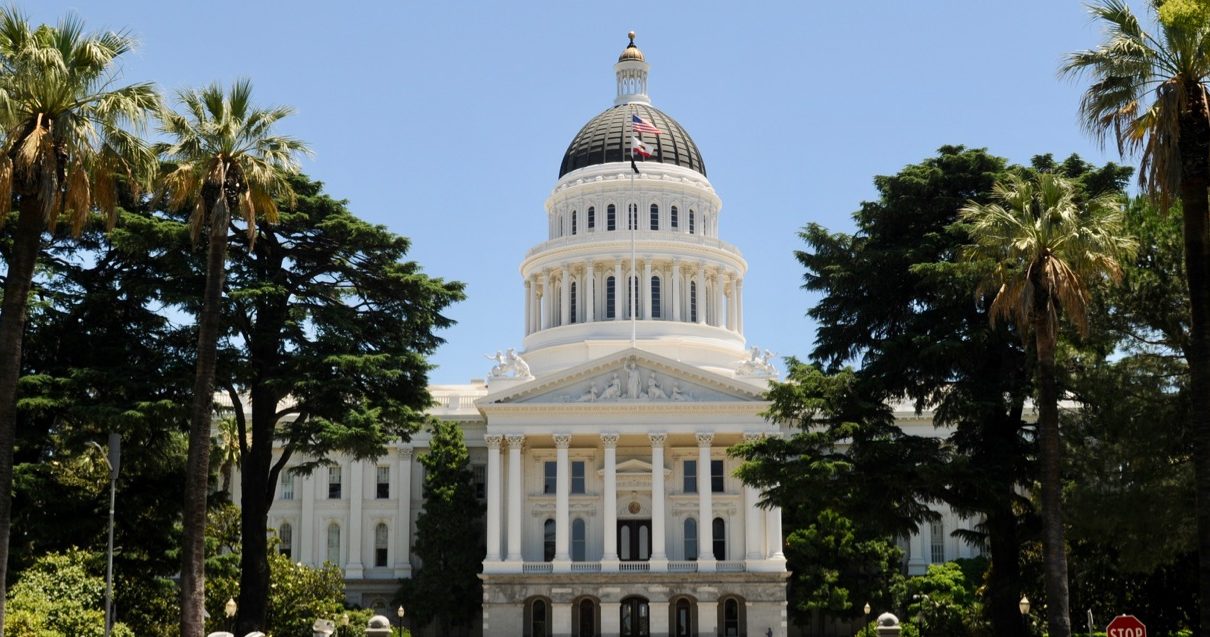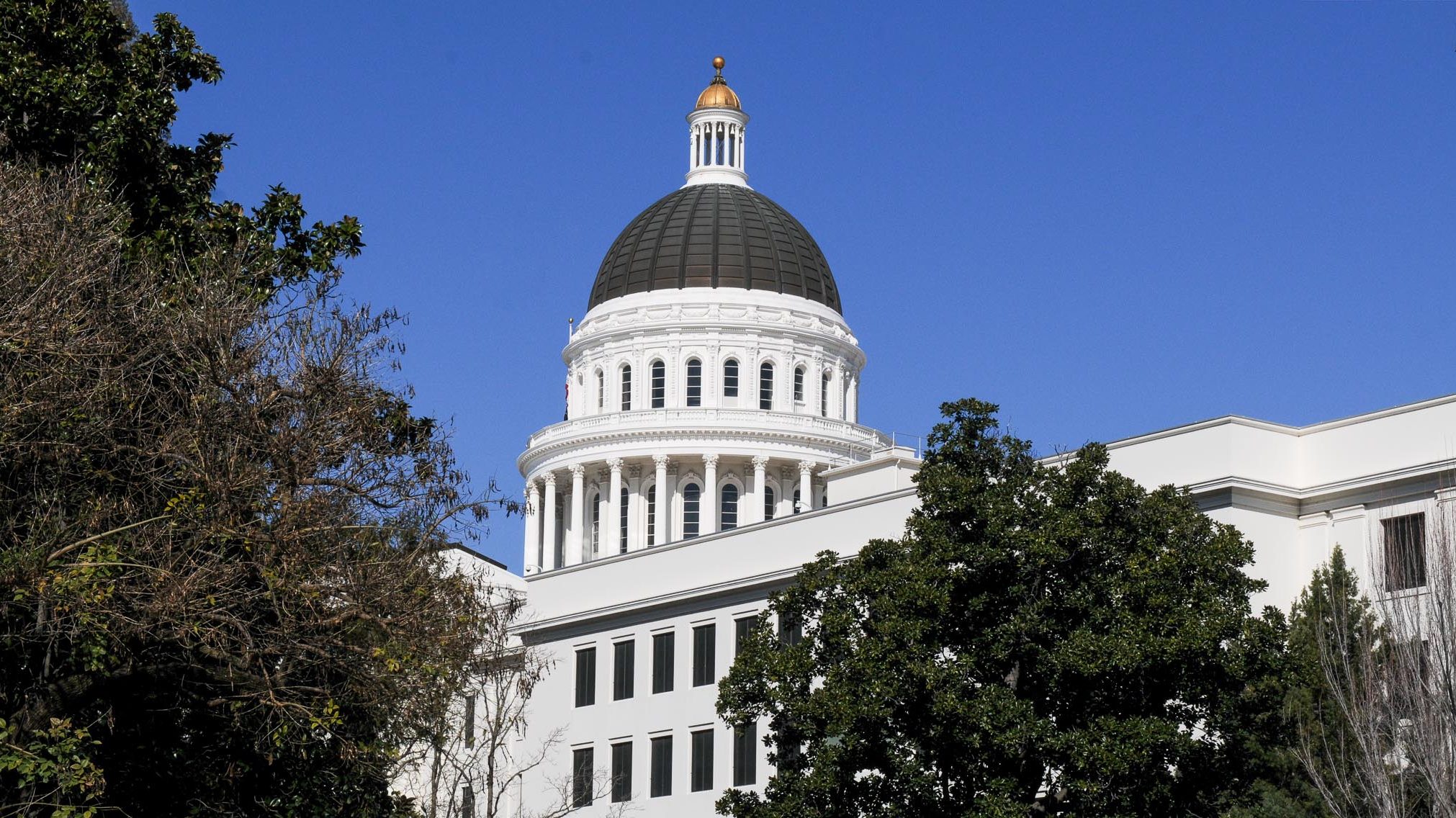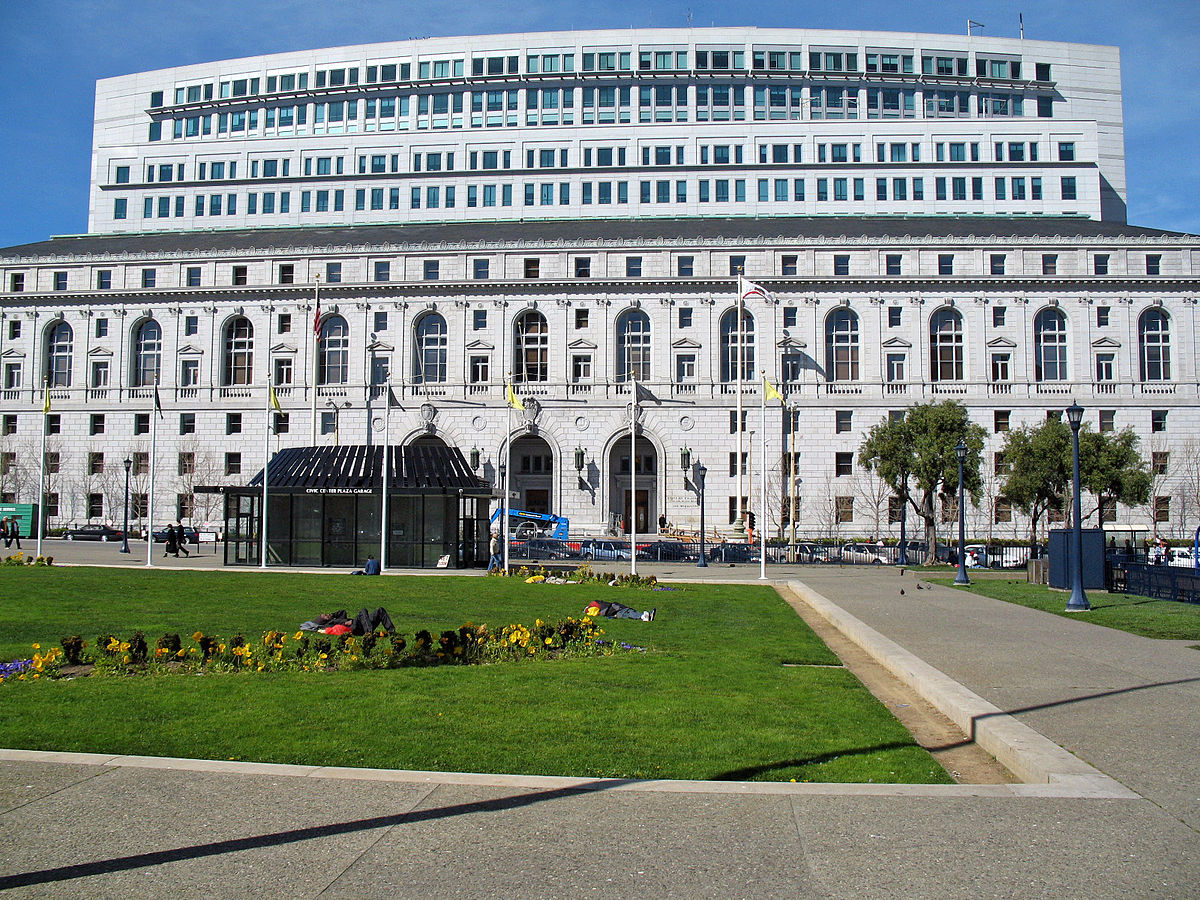
California State Capitol. (Photo: Kevin Sanders for California Globe)
Why Are We Not Talking About California’s Pension Problems?
Californian politicians have been leveraging public employee pensions to satisfy their own agenda
By Cecilia Iglesias, May 13, 2021 2:30 am
It is no secret that California has its own myriad of economic issues: high taxes, a bloated government, overly powerful unions, and many more. However, one issue that is a product of all of these, but does not get nearly enough attention, is skyrocketing public pensions.
For as long as I can remember, unions and Californian politicians have been leveraging public employee pensions to satisfy their own agenda, feeding into a vicious cycle of unattainable promises and overshot budgets. Where this problem is especially glaring is within firefighter unions.
Even though we are burdened with the highest taxes in the country, with sales taxes reaching to the double digits, public safety pensions have resulted in yearly tax ballot measures being pushed on voters by public safety unions. The problem is so far reaching in fact, that The California League of Cities estimates that by 2024, 54 to 63 percent of a city’s public safety payroll will go towards paying pension obligations for retirees. That is nearly two thirds of a payroll going just to pension costs alone. To further demonstrate the issue, the California Pension Tracker states that the market basis pension liability for California taxpayers is $81,634 per household, with the estimated pension liability for California over a trillion dollars.
The problem is – to the layman, pensions don’t sound like an issue. Established with the idea when an employer puts a certain amount in at a given time, the anticipated growth will equal what the employee has been promised by the time they retire. However, when the final number does not add up, the money has to come from somewhere. Meaning other facets of county budgets, like health care and education, are slashed to pay for these overreaching promises. California has no shortage of issues that need to be tackled, such as the state’s growing homelessness and food insecurity problem, but with a chunk of county budgets going towards firefighter pensions, those issues get pushed down the priority list.
While we are already being forced to pay for inflated firefighter pensions, counties are also trying to turn to a new model, known as the Alliance Model, that gives fire departments the decision-making power of a full EMS agency, without the oversight that typically comes along with it. Basically, they get all the power, without any of the accountability. As pointed out by a recent Reason Foundation paper, one of the biggest flaws of this model is its blatant favoritism to fire departments, who are trying to take over the ambulance departments. The paper lays out, “The combination of focusing on perceived positives of the model while ignoring downsides produce poor analyses that fire departments have used as touchstones in justifying their pursuit of a flawed governance model that undoubtedly benefits fire departments and their employee associations greatly, but at the expense of competition and transparency.”
For all the good California offers – beautiful coastlines, enviable weather, delicious food – there is a lot we need to work on. Public fire departments and firefighter unions are not-so-subtly trying to game a system only to pad their own wallets. They are deceiving taxpayers, ultimately resulting in higher taxes, bankrupt counties, and unresolved issues. We cannot solve a problem with another problem. It is time to reevaluate and reform these exorbitant public safety pensions.
- Why Are We Not Talking About California’s Pension Problems? - May 13, 2021




Firefighting is too dangerous — per firefighters themselves. Let’s replace them with robots or remote-controlled water-dogs. Programmers and gamers are a hell of a lot cheaper than those $200,000+ per year Manhattan Beach firefighters you see shopping at Gelson’s and Bristol Farms. 10 guys to go food shopping?
Well, Duh……They are together in the store because they are together for the full 24 hours of their shift. If the “call” comes they will all leave the store together too.
SeeSaw, you spout off more WHPPER lies about public employees than the busiest Burger King in CA….
And don’t you dare challenge the firefighters unions… They’re the “Public heroes” who save lives…
Most of the firefighters I’ve known are great people, but almost ALL of them have side careers landscaping, contracting or something else and they MAKE BANK!!!
Sure, their jobs are dangerous, but these unions have played on people’s better angels for DECADES and these pensions are now completely EGREGIOUS!!!
Why are we not talking about that elephant in the room?
Those costs that are rising are not “pension costs” (normal costs for pensions earned this year). Rising costs are the vigorish on all the contributions –not– paid when they were due for the last 12 years.
Like paying the minimum on a credit card every month. No reasonable amount of pension benefit reductions can correct this.
Still at it Stephen?
We BOTH know that the ROOT Cause of the pension mess in CA (and elsewhere) is ludicrously excessive (and hence ludicrously COSTLY) pension “generosity”.
Materially LESS generous pensions would lead to lower bills that can more easily be paid in full.
WE know that you are a retired CA Public Sector worker riding this gravy train, but do you ALSO get paid to be a mouthpiece for the Unions ?
Except –We BOTH know– there is no correlation between higher pensions and poor funding. For richer (Illinois) or poorer (Kentucky), the common denominator is failure to contribute even the minimum ARC. New Jersey is in a death spiral, even with it’s mediocre –not– ludicrously excessive pensions.
California has the largest pension debt in the nation only because it is the 6th largest pension system in the world. It’s funded status is average, even with it’s more generous pensions (and lower than average wages.)
A good dose of pension reform based on good data would help every state. Knee jerk, reactionary reductions based on biased opinions is a recipe for (even more) disaster.
Stephen,
We discussed this issue just last week……………
The are NO Public Sector Pensions that are near fully funded when using APPROPRIATE assumptions (like the assumptions that Moody’s and Private Sector Plans use) and NOT the optimistic/aspirational/risk-ignoring assumptions ALWAYS used in PUBLIC Sector Plan valuations. The BEST are only funded in the 70s%.
And even those ONLY get to that level in one of two ways. Either (1) their Plans include significant risk & cost-sharing elements (VERY uncommon in Public Sector Plans), and/or (2) they mightily soak their residents with high taxes.
There is no free lunch …………. very generous pension Plans (as are most PUBLIC Sector Plans, and ALL Safety-worker Plans) will always require VERY high annual contributions, and THAT’S just to fund the Plan’s “Normal Cost”.
As as to your “judgement”, you have stated that you don’t even find CA Public Police pensions to be excessive………. yet it is easily demonstrated that to fully fund the COLA-increased 3%@50 CA Police/Fire pension (again, using APPROPRIATE assumptions) over the worker’s career, the total (EE + ER) annual pension contribution must be about 70% of pay. Deduct the 10%-of-pay contributed by the employee, and that leaves Taxpayers stuck with an annual 60%-of pay balance ……….. over 15 TIMES (yes 15 TIMES) ………. greater than the roughly 4% of pay (into a 401K Plan) that is all the employees of large Private Sector employers typically get in retirement security contributions from their employers.
It’s WELL PAST time to put an end to this legalized THEFT, and for the future service of all CURRENT (not just new) workers.
I understand, sir. Bless your heart.
Also, California does –not– have the “highest taxes in the country”. Why do people (–you– people?) keep saying that? Depending on who you ask, maybe third to tenth highest in the nation, on average.
Unless…
You are a middle income household ($60-90k per year). If so, according to ITEP, your combined state and local taxes are –lower– than the national average.
Unless…
You are rich. California has probably the highest tax rates in the country for the uber-wealthy. There is that.
Stephen Douglas, California is famous for its “hidden taxes” that are disguised as regulatory FEES. When these are put on businesses, services, and consumer goods, those “taxes” get passed on to consumers. Taxes are not JUST on income.
Tax Foundation
Which Taxes Are Included in the Tax Burdens Estimates?
We include all taxes reported by the Census Bureau’s State and Local Government Finance division. These taxes are:
Property taxes;
General sales taxes;
Excise taxes on alcoholic beverages, amusements, insurance premiums, motor fuels, pari-mutuels, public utilities, tobacco products, and other miscellaneous transactions;
License taxes on alcoholic beverages, amusements, general corporations, hunting and fishing, motor vehicles, motor vehicle operators, public utilities, occupations and businesses not classified elsewhere, and other miscellaneous licenses;
Individual income taxes;
Corporate income taxes;
Estate, inheritance, and gift taxes;
Documentary and transfer taxes;
Severance taxes;
Special assessments for property improvements; and
Miscellaneous taxes not classified in one of the above categories.
California may not be as terrible as you’ve been told. Several measures, state/local revenue per capita. .. state/local expenditures per capita, all rank California at about #8 to #11 highest. California average income also among the highest.
We are just not that special.
QED. And all of the things you list, Stephen, result in a $75 billion budget surplus because Californians are being OVER taxed.
“All the things I list”, Raymond, are the same criteria the Tax Foundation uses to compare –all– states. And California routinely comes in about 8th to 11th highest tax per capita. You may have noticed, this year was somewhat different from prior years, and hopefully from future years. Part of the $75 B was federal relief, and the rest was unexpected revenue from much higher than average income from the highest earners.
Most people are not particularly fond of paying taxes, but probably for some logical reason, taxes are highest on both coasts, and Illinois, the ” coast” of the Great Lakes. Major high density population centers, in other words. You will likely find that in California, taxes (and fees) are much higher in the Coastal cities than in the Central Valley and Mountain counties. It’s not rocket science. As I said, California is a very progressive taxation state. If your salary was below $100,000, you probably paid less in taxes than you would have in the “average” state.
Maybe the state will give you a refund this year, Raymond.
Just vote no on the recall.
“Part of the $75 B was federal relief, and the rest was unexpected revenue from much higher than average income from the highest earners.”
Stephen, this is typical liberal gaslighting. When does the YEARLY state budget calculations include COVID19 relief funds? No way. And your highest earners are leaving the state – like Elon Musk. As he said, “Give people their f….ing FREEDOM.”
Associated Press, May 10, 2021
“The projected $75.7 billion budget surplus is largely due to taxes paid by rich Californians who generally did well during the pandemic, and marks a major turnaround after officials last year said they feared a deficit of more than $50 billion.”
“The state will also get $27 billion from the latest federal coronavirus spending plan, the U.S. Treasury Department announced Monday.”
“A law passed by voters in the 1970s requires the state to give some money back to taxpayers if the surplus hits a certain limit. The state estimates it will be $16 billion over that threshold. Newsom does not have to act immediately, but is choosing to do tax rebates now, Palmer said.”
Nobody’s blowing smoke up your skirt, Raymond. If you want to be a pseudo-martyr, be my guest.
Stephen, glad to hear that you’re not a “smoker”. Unlike Elon, never have touched the stuff myself. But beware of your sources. The Associated Press and Reuters for example: http://www.molonlabemedia.com/2016/05/06/media-ap-reuters-owned/. You may be more cautious about believing everything you read. Best to check your sources. They may have hidden agendas.
I understand, Raymond.
Dougieeeee…. Put those public employee whoppers you spew out on a daily basis in the trash can, where they belong!
Amen! CA Seniors get higher standard deductions, and double tax credits. And, SS Income is not taxed.
And why are we not talking about releasing the Eviction Moratorium so small landlords can get their properties back from non-paying tenants? It’s been more than a year!!! Small landlords had their property taken from them by the government and get nothing for subsidized tenants living in the units! Give the small landlords a check for all the rent they lost. Release the Eviction Moratorium. The news says there are billions and billions of dollars in surplus and not one dollar is going to the small landlords!!!! That also means the small landlords are not permitted to get back to a “normal” life, whatever that is, while the governor touts everyone in California is back to normal!!! Not the small landlords!!! Release the Eviction Moratorium so the small landlords can get their properties back and rented out to people who pay!!! Thank you.
It’s why so many are selling their SF CA rental properties. A friend recently told me of friends of his who had the house they were renting sold out from under them. They are unable to find a rental to move into, and on one waiting list, they are number 45!! The Sac crazies are causing this shortage of rentals! I’ve been selling mine; just have one left and the tenant is buying it.
California will never end the eviction ban. If they do the homeless crisis that currently exists will quadruple. Newsome will be blamed, deservedly. The economic restrictions put in place around the world were never intended to “slow the spread”, they were implemented to weaken the evil middle class that got too big and powerful and put Disruptor Trump into office. You’ll see, the current eviction ban will be extended come June 2021.
its really simple. this is what cali voters wanted. its what they keep voting for, so find something else to write about. loves me my calpers pension! if it was so bad, people would change their ways. but they don’t. then they leave cali and pollute every place else they move to. so, get over it. its not real money anyway. its not backed by anything. money printer go brrrrrrrrrrr! print away!